
The Enchanting Wagah Border: A Cross-Cultural Gateway
The Wagah Border in Amritsar, India, is a place that vividly captures the essence of Indo-Pak relations. Known for its daily flag-lowering ceremony, the Wagah Border is a symbol of the shared history and cultural ties between the two nations. The ceremony is an electrifying display of patriotism, where soldiers from both sides perform coordinated drills, and the crowd's enthusiasm is palpable. This ritual, often described as a 'beating retreat' ceremony, is a spectacle that draws thousands of visitors every day. Located a short drive from the city of Amritsar, the Wagah Border offers more than just the ceremony. The area around the border is rich with historical significance and provides a glimpse into the complex yet fascinating relationship between India and Pakistan. The atmosphere is filled with a sense of camaraderie and pride, making it a captivating experience for tourists. Besides the ceremony, the surrounding area has several points of interest, including memorials and museums that offer insights into the history and culture of the region. The local cuisine, with its array of Punjabi delicacies, adds another layer of enjoyment to your visit. Make sure to arrive early to get a good spot, as the ceremony is quite popular and seats fill up quickly.
Local tips in Wagah Border
- Arrive at least an hour before the ceremony to ensure good seating.
- Carry a valid ID as security checks are stringent.
- Wear comfortable shoes as you might need to walk a bit from the parking area.
- Photography is allowed, so bring your camera to capture the moment.
- Try local street food outside the border area for an authentic Punjabi culinary experience.
The Enchanting Wagah Border: A Cross-Cultural Gateway
The Wagah Border in Amritsar, India, is a place that vividly captures the essence of Indo-Pak relations. Known for its daily flag-lowering ceremony, the Wagah Border is a symbol of the shared history and cultural ties between the two nations. The ceremony is an electrifying display of patriotism, where soldiers from both sides perform coordinated drills, and the crowd's enthusiasm is palpable. This ritual, often described as a 'beating retreat' ceremony, is a spectacle that draws thousands of visitors every day. Located a short drive from the city of Amritsar, the Wagah Border offers more than just the ceremony. The area around the border is rich with historical significance and provides a glimpse into the complex yet fascinating relationship between India and Pakistan. The atmosphere is filled with a sense of camaraderie and pride, making it a captivating experience for tourists. Besides the ceremony, the surrounding area has several points of interest, including memorials and museums that offer insights into the history and culture of the region. The local cuisine, with its array of Punjabi delicacies, adds another layer of enjoyment to your visit. Make sure to arrive early to get a good spot, as the ceremony is quite popular and seats fill up quickly.
Iconic landmarks you can’t miss
Attari - Wagah Border
Experience the electrifying 'Beating Retreat' ceremony at the Attari-Wagah Border, a stirring display of military tradition and national pride.
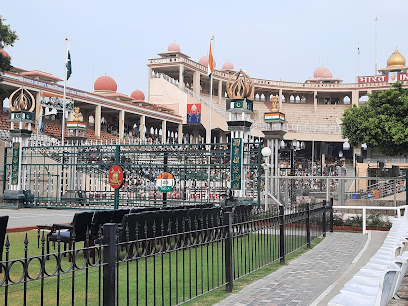
Attari border Punjab
Witness the electrifying Beating Retreat ceremony at the Attari Border, a symbol of India-Pakistan relations near Amritsar. A display of patriotism and history.
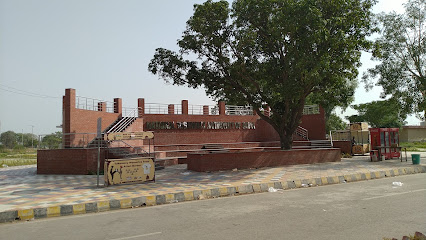
Wagah Border Park
Explore the stunning Wagah Border Park, where nature's beauty meets the vibrant spirit of the India-Pakistan border ceremony.
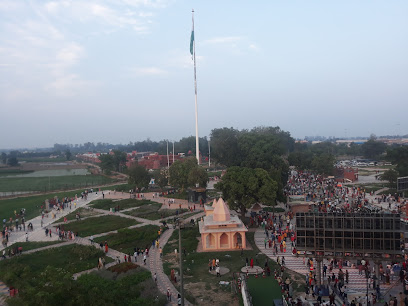
Bullet Marks site 2
Reflect on history at Amritsar's Bullet Marks Site 2, a powerful reminder of past struggles and enduring resilience.
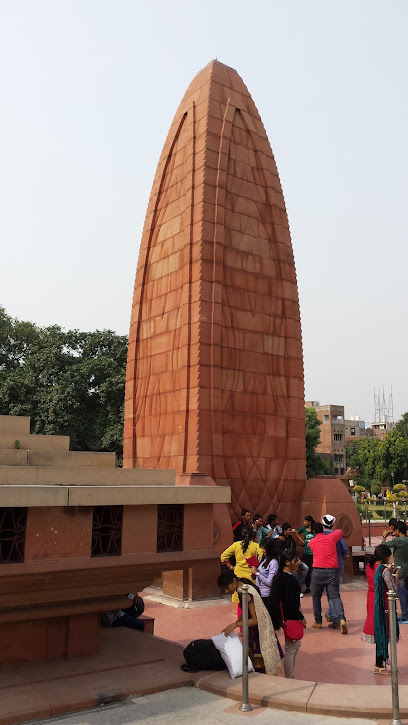
Wagah border
Experience the electrifying Wagah Border ceremony, a daily display of military pageantry and national pride between India and Pakistan.
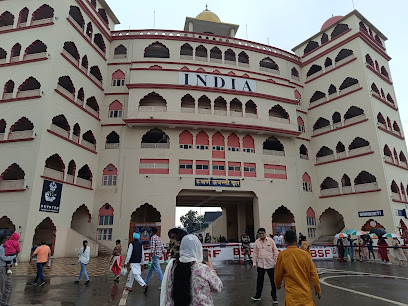
Unmissable attractions to see
Sadda Pind Amritsar
Experience the vibrant culture and traditions of rural Punjab at Sadda Pind, a living museum near Amritsar.
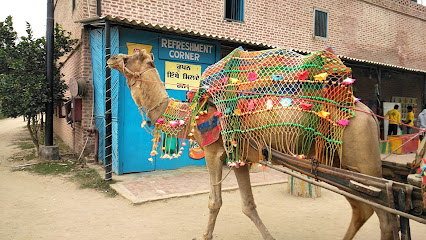
Gobindgarh Fort
Discover Punjab's vibrant history at Gobindgarh Fort, a majestic fortress in Amritsar offering a unique blend of culture, heritage, and entertainment.
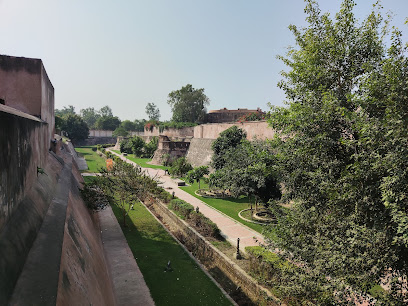
Punjab State War Heros' Memorial & Museum
A poignant tribute to Punjab's war heroes, showcasing their courage and sacrifice through immersive exhibits and historical artifacts.
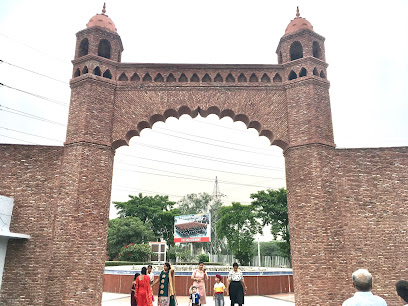
Gurudwara Chheharta Sahib
Visit Gurudwara Chheharta Sahib near Amritsar, a historic Sikh shrine with a sacred well symbolizing prosperity and healing.
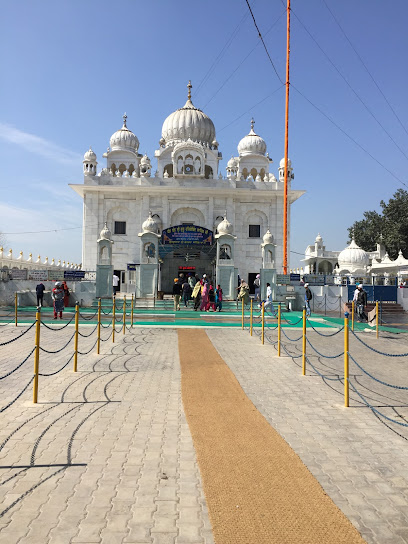
Amritsar Heritage Walk & Golden Temple Tour
Discover Amritsar's soul: A heritage walk through history, culture, and architectural wonders, culminating at the Golden Temple.
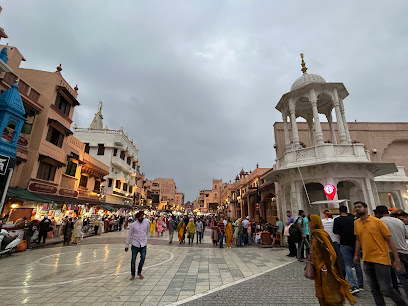
Jallianwala Bagh Museum
A historic garden in Amritsar commemorating the Jallianwala Bagh Massacre, a pivotal event in India's struggle for independence.
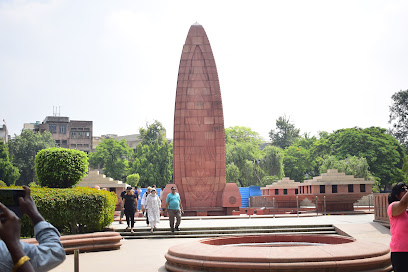
Bullet Marks site 2
Reflect on India's past at Amritsar's Bullet Marks Site 2, a powerful memorial preserving history and honoring sacrifices.
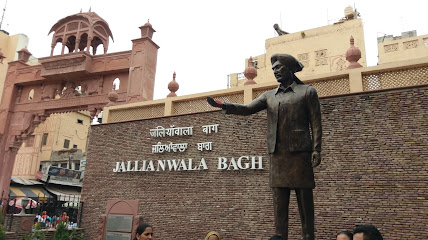
Essential places to dine
Shahi Qila
Savor authentic Punjabi flavors at Shahi Qila near Wagah Border - an unforgettable dining experience steeped in tradition.
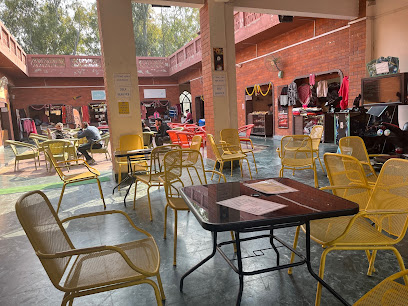
Muskaan Restaurants and Outdoor Caterer
Experience the rich flavors of North India at Muskaan Restaurants – your go-to spot for delicious vegetarian meals in Amritsar.
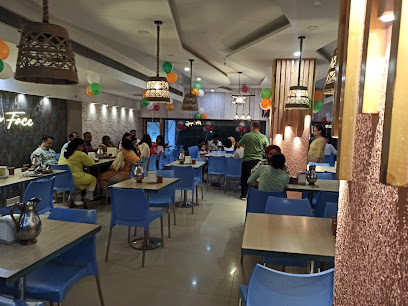
Lazeez Restaurant CP 5
Savor the flavors of fast food at Lazeez Restaurant in Amritsar – where quick bites meet delicious tastes.
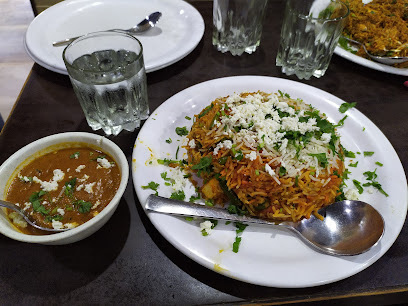
Sandhu Dhaba
Discover authentic Punjabi cuisine at Sandhu Dhaba on Grand Trunk Road - A culinary journey through Punjab's rich flavors awaits.
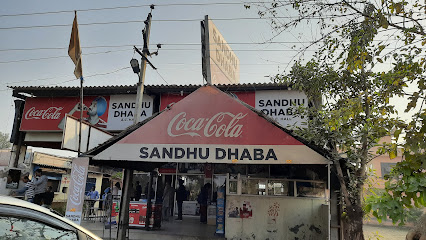
Khaira Restaurant & Party Hall
Experience the vibrant flavors of Punjab at Khaira Restaurant & Party Hall – where tradition meets taste.
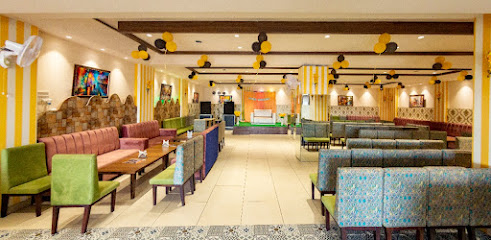
Saddi Haweli
Discover authentic Punjabi flavors at Saddi Haweli near India Gate in Amritsar - where tradition meets taste.
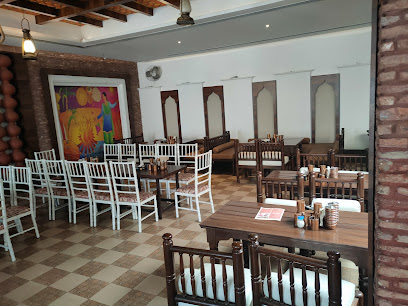
Apni rasoi
Experience authentic Punjabi cuisine at Apni Rasoi – where family-friendly dining meets rich culinary traditions in Amritsar.
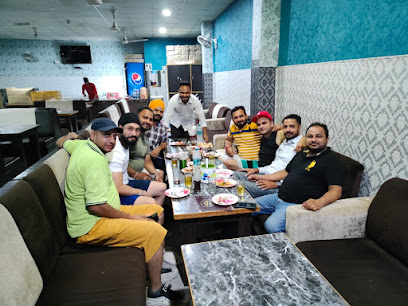
S B Dhaba
Experience authentic Punjabi flavors at S B Dhaba on National Highway 1 – a must-visit culinary stop for all travelers.
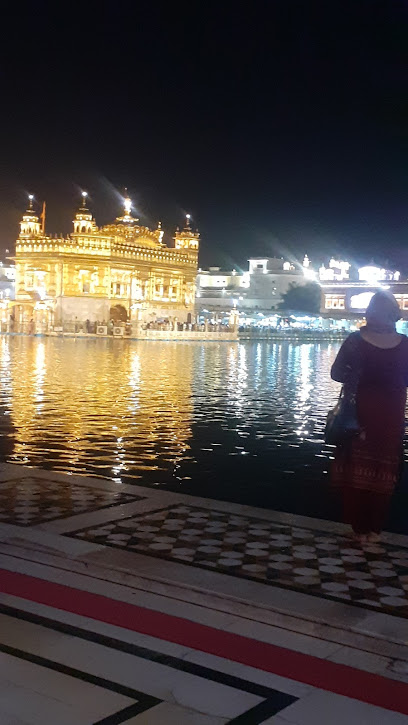
Amrit Dhaba
Experience authentic Punjabi flavors at Amrit Dhaba in Amritsar - where hearty meals meet warm hospitality.
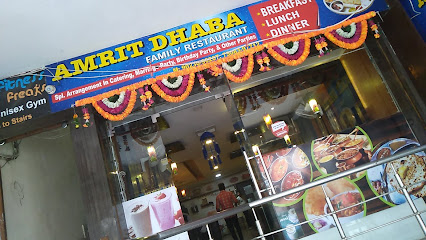
Panjabi dhaba
Discover the essence of Punjabi culture through authentic cuisine at Panjabi Dhaba in Amritsar.
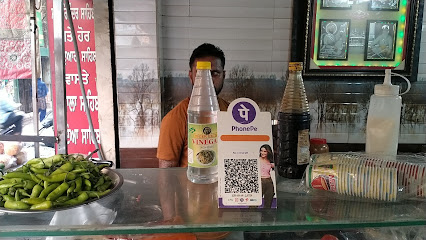
Markets, malls and hidden boutiques
cloth market
Explore the vibrant Cloth Market in Amritsar, a shopper's haven for traditional attire and unique fabrics reflecting Punjabi culture.
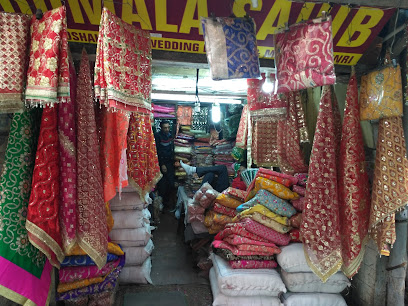
Nehru shopping complex
Discover the vibrant Nehru Shopping Complex in Amritsar, where shopping meets local culture in a lively atmosphere.
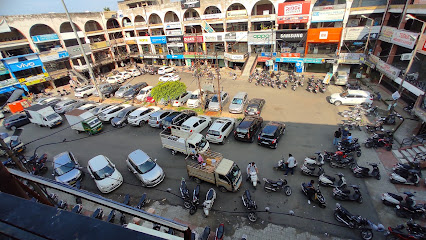
Narula's Mall
Explore Narula's Mall in Amritsar, where shopping, dining, and entertainment come together for an unforgettable experience.
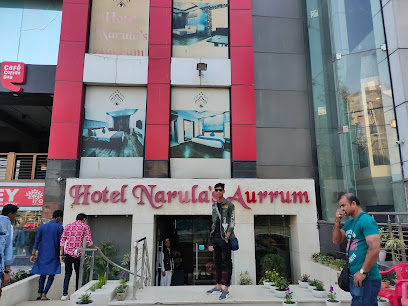
Raja Exclusive | Phulkari in Amritsar Phulkari suit in Amritsar Phulkari Dupatta in Amritsar |
Explore the rich heritage of Punjab with exquisite Phulkari suits and dupattas at Raja Exclusive in Amritsar.
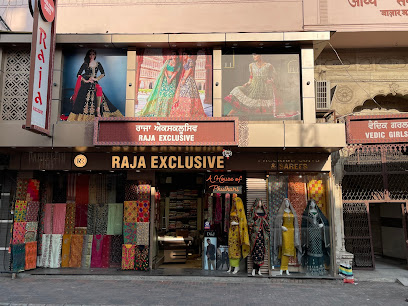
Ruaab Punjabi Jutti Amritsar
Discover the artistry of traditional Punjabi footwear at Ruaab Punjabi Jutti in Amritsar, where craftsmanship meets culture.
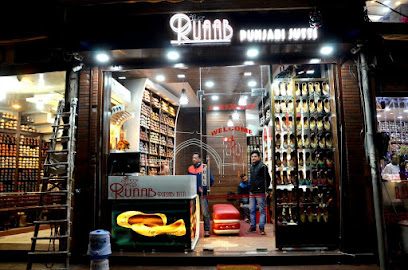
Amritsar Bazaar
Explore Amritsar Bazaar for exquisite handwoven carpets that embody the rich textile heritage of Punjab, perfect for unique home decor or memorable gifts.
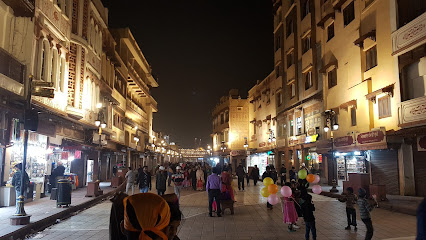
KPK Master Bhandar Amritsar
Explore KPK Master Bhandar in Amritsar for authentic local snacks, traditional souvenirs, and a true taste of Punjabi culture.

Pancham Collections
Discover the essence of Indian fashion at Pancham Collections, your go-to destination for exquisite women's clothing and fabrics in Amritsar.

Shop No 45
Experience the essence of Punjab with unique local goods at Shop No 45 in Amritsar, where culture meets craftsmanship.
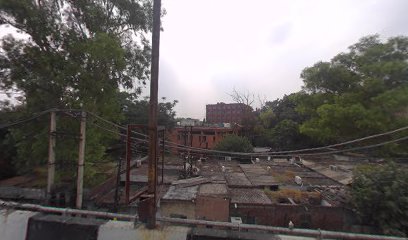
Bus
Experience Amritsar's vibrant culture and daily life by exploring the city through its affordable and lively bus system.

Essential bars & hidden hideouts
Shahi Qila
Discover the authentic flavors of Punjab at Shahi Qila, a cultural dining haven near Wagah border, where tradition meets taste.
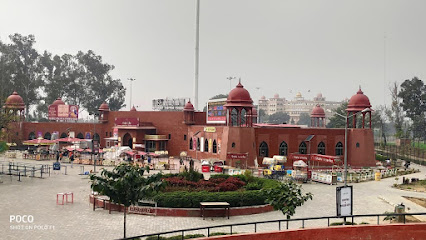
Sarhad
Experience the rich flavors of Punjab at Sarhad, where authentic Indian and Pakistani cuisine meets warm hospitality.
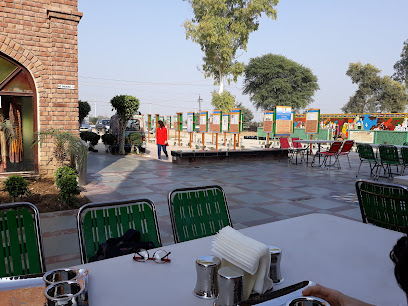
Bon's Adda - Garden Cafe | Best Clubs in Amritsar
Experience the vibrant atmosphere of Bon's Adda, a garden café in Amritsar that perfectly blends delicious cuisine with a lively social scene.
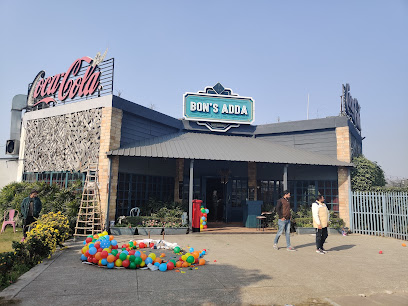
Egyptian Brewery | Best bar & Pub In Ranjit avenue Amritsar- Restro Bar in amritsar- best Night Club in Amritsar
Discover the best of Amritsar's nightlife at Egyptian Brewery, where exceptional food, drinks, and vibrant energy await you.
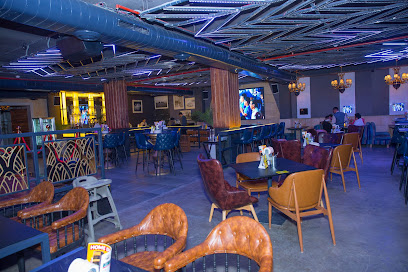
The Beer Café
Discover The Beer Café in Amritsar for a delightful fusion of grilled delicacies, diverse cuisines, and a vibrant atmosphere perfect for social gatherings.
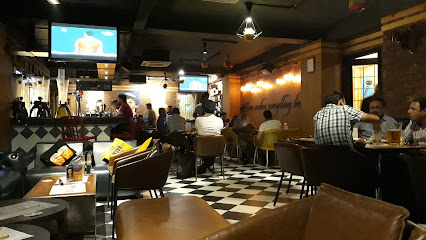
The Liquid Room- Best Pub, Club/Bar In Amritsar
Discover the vibrant nightlife of Amritsar at The Liquid Room, the ultimate pub and club experience with delicious food and drinks.

Saddi Haweli
Experience the vibrant flavors of Punjab at Saddi Haweli, a must-visit restaurant near India Gate in Amritsar, perfect for breakfast and traditional Punjabi cuisine.
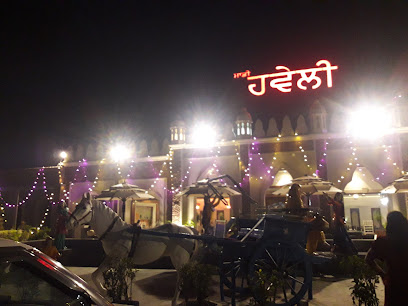
English wine and beer shop Amritsar
Explore a unique selection of local and imported wines and beers at Amritsar's cozy English Wine and Beer Shop, where culture meets refreshment.
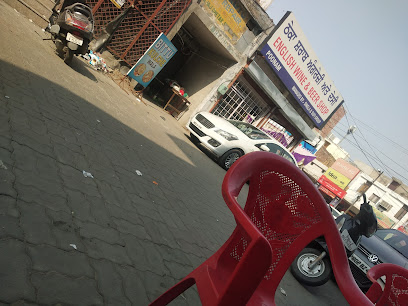
Amrit Dhaba
Discover the authentic taste of Punjab at Amrit Dhaba, where traditional dishes and a cozy atmosphere await in the heart of Amritsar.
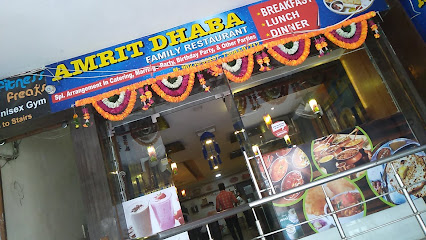
Highway Nest
Experience the delightful culinary offerings at Highway Nest, where comfort food meets the heart of Punjab in a warm and inviting atmosphere.
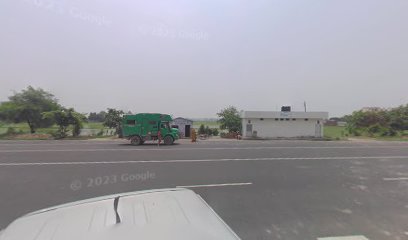
Local Phrases
-
- Helloਹੈਲੋ
[hello] - Goodbyeਅਲਵਿਦਾ
[alvida] - Yesਹਾਂ
[haan] - Noਨਹੀਂ
[nahin] - Please/You're welcomeਕਿਰਪਾ ਕਰਕੇ
[kirpa karke] - Thank youਧੰਨਵਾਦ
[dhanvaad] - Excuse me/Sorryਮਾਫ ਕਰਨਾ
[maaf karna] - How are you?ਤੁਸੀਂ ਕਿਵੇਂ ਹੋ?
[tusi kiven ho?] - Fine. And you?ਠੀਕ ਹਾਂ। ਤੁਸੀਂ?
[thik haan. tusi?] - Do you speak English?ਤੁਸੀਂ ਅੰਗਰੇਜ਼ੀ ਬੋਲਦੇ ਹੋ?
[tusi angrezi bolde ho?] - I don't understandਮੈਨੂੰ ਸਮਝ ਨਹੀਂ ਆ ਰਹੀ
[mainu samajh nahi aa rahi]
- Helloਹੈਲੋ
-
- I'd like to see the menu, pleaseਕਿਰਪਾ ਕਰਕੇ ਮੇਨੂ ਵੇਖਣਾ ਚਾਹੁੰਦਾ ਹਾਂ
[kirpa karke menu vekhna chahunda haan] - I don't eat meatਮੈਂ ਮੀਟ ਨਹੀਂ ਖਾਂਦਾ
[main meat nahi khandha] - Cheers!ਚੀਅਰਸ!
[cheers!] - I would like to pay, pleaseਕਿਰਪਾ ਕਰਕੇ ਮੈਂ ਭੁਗਤਾਨ ਕਰਨਾ ਚਾਹੁੰਦਾ ਹਾਂ
[kirpa karke main bhugtan karna chahunda haan]
- I'd like to see the menu, pleaseਕਿਰਪਾ ਕਰਕੇ ਮੇਨੂ ਵੇਖਣਾ ਚਾਹੁੰਦਾ ਹਾਂ
-
- Help!ਮਦਦ!
[madad!] - Go away!ਚਲੋ!
[chalo!] - Call the Police!ਪੁਲਿਸ ਨੂੰ ਬੁਲਾਓ!
[police nu bulao!] - Call a doctor!ਡਾਕਟਰ ਨੂੰ ਬੁਲਾਓ!
[doctor nu bulao!] - I'm lostਮੈਂ ਖੋ ਗਿਆ ਹਾਂ
[main kho gaya haan] - I'm illਮੈਂ ਬੀਮਾਰ ਹਾਂ
[main beemar haan]
- Help!ਮਦਦ!
-
- I'd like to buy...ਮੈਂ ... ਖਰੀਦਨਾ ਚਾਹੁੰਦਾ ਹਾਂ
[main ... khareedna chahunda haan] - I'm just lookingਮੈਂ ਬਸ ਦੇਖ ਰਿਹਾ ਹਾਂ
[main bas dekh raha haan] - How much is it?ਇਸ ਦਾ ਕੀਮਤ ਕੀ ਹੈ?
[is da kimat ki hai?] - That's too expensiveਇਹ ਬਹੁਤ ਮਹੰਗਾ ਹੈ
[eh bahut mahanga hai] - Can you lower the price?ਕੀ ਤੁਸੀਂ ਕੀਮਤ ਘਟਾ ਸਕਦੇ ਹੋ?
[ki tusi kimat ghatya sakde ho?]
- I'd like to buy...ਮੈਂ ... ਖਰੀਦਨਾ ਚਾਹੁੰਦਾ ਹਾਂ
-
- What time is it?ਕਿੱਤੇ ਵਕਤ ਹੈ?
[kitte vakat hai?] - It's one o'clockਇੱਕ ਵਜੇ ਹਨ
[ikk vaje han] - Half past (10)ਦਸ ਵਜੇ ਦੇ ਬਾਅਦ ਦੇ ਆਧੇ
[das vaje de baad de aadhe] - Morningਸਵੇਰ
[saver] - Afternoonਦੁਪਹਿਰ
[dopahar] - Eveningਸ਼ਾਮ
[shaam] - Yesterdayਕੱਲ
[kal] - Todayਅੱਜ
[ajj] - Tomorrowਕਲ
[kal] - 1ਇੱਕ
[ikk] - 2ਦੋ
[do] - 3ਤਿੰਨ
[tinn] - 4ਚਾਰ
[chaar] - 5ਪੰਜ
[panj] - 6ਛੇ
[chhe] - 7ਸੱਤ
[satt] - 8ਅੱਠ
[ath] - 9ਨੌਂ
[naun] - 10ਦਸ
[das]
- What time is it?ਕਿੱਤੇ ਵਕਤ ਹੈ?
-
- Where's a/the...?ਕਿੱਥੇ ਹੈ ...?
[kithe hai ...?] - What's the address?ਪਤਾ ਕੀ ਹੈ?
[pata ki hai?] - Can you show me (on the map)?ਕੀ ਤੁਸੀਂ ਮੈਨੂੰ ਦਿਖਾ ਸਕਦੇ ਹੋ (ਮੈਨੂੰ ਨਕਸ਼ੇ ਤੇ)?
[ki tusi mainu dikhya sakde ho (mainu nakashe te)?] - When's the next (bus)?ਅਗਲੀ (ਬਸ) ਕਦੋਂ ਹੈ?
[agli (bas) kado hai?] - A ticket (to ....)ਇੱਕ ਟਿਕਟ (.... ਨੂੰ)
[ikk ticket (... nu)]
- Where's a/the...?ਕਿੱਥੇ ਹੈ ...?
History of Wagah Border
-
The Wagah Border is a significant point of division between India and Pakistan, established during the Partition of India in 1947. This border crossing has become a symbol of the complex history and ongoing tensions between the two nations. The area is steeped in historical narratives of migration, conflict, and the struggle for independence, making it a poignant site reflecting the broader historical context of Amritsar.
-
During the Partition, millions were displaced, leading to a massive humanitarian crisis. Amritsar, being close to the border, witnessed significant migration as people moved across the new lines drawn on the map. The Wagah Border became a focal point for families seeking to reunite and for those fleeing violence, thus embedding deep emotional and historical significance in the region.
-
Since 1959, the Wagah Border has been home to the famous Beating Retreat ceremony, held daily at sunset. This ceremonial display of military pageantry involves soldiers from both India and Pakistan engaging in a synchronized show of strength and discipline. The ceremony attracts thousands of spectators, symbolizing both rivalry and a spirit of nationalism, while also fostering a unique cultural exchange between the two countries.
-
The Wagah Border has evolved into a significant tourist attraction, drawing visitors from across India and abroad. The vibrant atmosphere during the Beating Retreat ceremony, coupled with the historical narratives surrounding the border, have made it a site of cultural interest. Local vendors and performers contribute to the lively ambiance, showcasing Punjabi culture and hospitality, further enriching the experience for tourists.
-
In contemporary times, the Wagah Border stands as a complex symbol of the India-Pakistan relationship. It is a site where national pride is on display, yet it also underscores the ongoing political tensions. Events at the border continue to evoke strong emotions among citizens of both nations, making it a focal point for discussions on peace, conflict, and cultural identity in the broader context of Amritsar's historical landscape.
Wagah Border Essentials
-
Wagah Border is located approximately 30 kilometers from Amritsar city center. The most convenient way to get there is by taxi, which can be hired from various locations in Amritsar, including hotels and the railway station. Auto-rickshaws are also available, but it’s advisable to negotiate the fare beforehand. Alternatively, local buses operate routes to the border, but they may take longer and require transfers.
-
Wagah Border is primarily a pedestrian area, especially during the daily retreat ceremony. Visitors typically walk to and from the border area. Public transport options are limited within Wagah, but taxis are available for hire. For those interested in cycling, renting a bicycle in Amritsar and riding to Wagah can be a scenic option, but be prepared for heavy traffic.
-
Wagah Border is generally safe for tourists, especially during the day when the border ceremony takes place. However, it is advisable to stay in well-lit areas at night and keep an eye on your belongings in crowded places. Petty theft can occur, especially near the border crossing. Avoid any unauthorized areas near the border and be cautious of touts offering transportation or guided tours.
-
In case of emergencies, dial 100 for police assistance or 108 for medical emergencies. Local hospitals are available in Amritsar, and it is advisable to carry travel insurance that covers medical emergencies. For minor issues, local pharmacies can provide over-the-counter medications. Always keep a copy of identification and emergency contacts handy.
-
Fashion: Do dress conservatively, especially if visiting the nearby Golden Temple. Avoid shorts and revealing tops. Religion: Do respect local customs, particularly during rituals. Public Transport: Do be polite and share space. Don't engage in loud conversations. Greetings: Do greet with a friendly smile and a nod. Eating & Drinking: Do enjoy local snacks from vendors, but avoid eating in public spaces near the border.
-
To experience Wagah Border like a local, arrive early to secure a good viewing spot for the retreat ceremony. Engage with local vendors selling snacks and souvenirs, and don't hesitate to ask locals for recommendations. It’s also beneficial to learn a few basic Punjabi phrases, as it can enhance your interactions. Remember to stay hydrated and wear sunscreen, especially during the summer months.
Nearby Cities to Wagah Border
-
Things To Do in Amritsar
-
Things To Do in Gujranwala
-
Things To Do in Sialkot
-
Things To Do in Jammu
-
Things To Do in Faisalabad
-
Things To Do in Shimla
-
Things To Do in Manali
-
Things To Do in Rawalpindi
-
Things To Do in Islamabad
-
Things To Do in Murree
-
Things To Do in Abbottabad
-
Things To Do in Multan
-
Things To Do in Kaghan
-
Things To Do in Naran
-
Things To Do in Rishikesh








